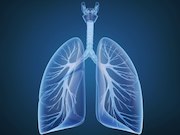Greater risks were seen following severe exacerbation versus moderate exacerbation
TUESDAY, June 19, 2018 (HealthDay News) — For adults with chronic obstructive pulmonary disease (COPD), acute exacerbations are associated with increased risk of myocardial infarction and ischemic stroke, according to a study published online May 3 in the Annals of the American Thoracic Society.
Kieran J. Rothnie, Ph.D., from Imperial College London, and colleagues recruited 5,696 adults with COPD with a first myocardial infarction or ischemic stroke and at least one acute exacerbation to examine the subsequent rates of myocardial infarction and ischemic stroke.
The researchers found that in the 91 days following acute exacerbation, the risks of both myocardial infarction and ischemic stroke were increased. Greater risks were seen following a severe exacerbation (incidence rate ratios, 2.58 and 1.97 for myocardial infarction and ischemic stroke, respectivley) than after a moderate exacerbation (incidence rate ratios, 1.58 and 1.45, respectively). Those with more frequent exacerbations had lower relative risks of myocardial infarction (incidence rate ratio, 1.42 versus 1.69) and ischemic stroke (incidence rate ratio, 1.30 versus 1.68).
“Acute exacerbations of COPD are associated with an increased risk of myocardial infarction and ischemic stroke within 28 days of their onset,” the authors write. “Several patient characteristics were identified which are associated with these events.”
One author disclosed financial ties to GlaxoSmithKline, which partially funded the study.
Copyright © 2018 HealthDay. All rights reserved.








